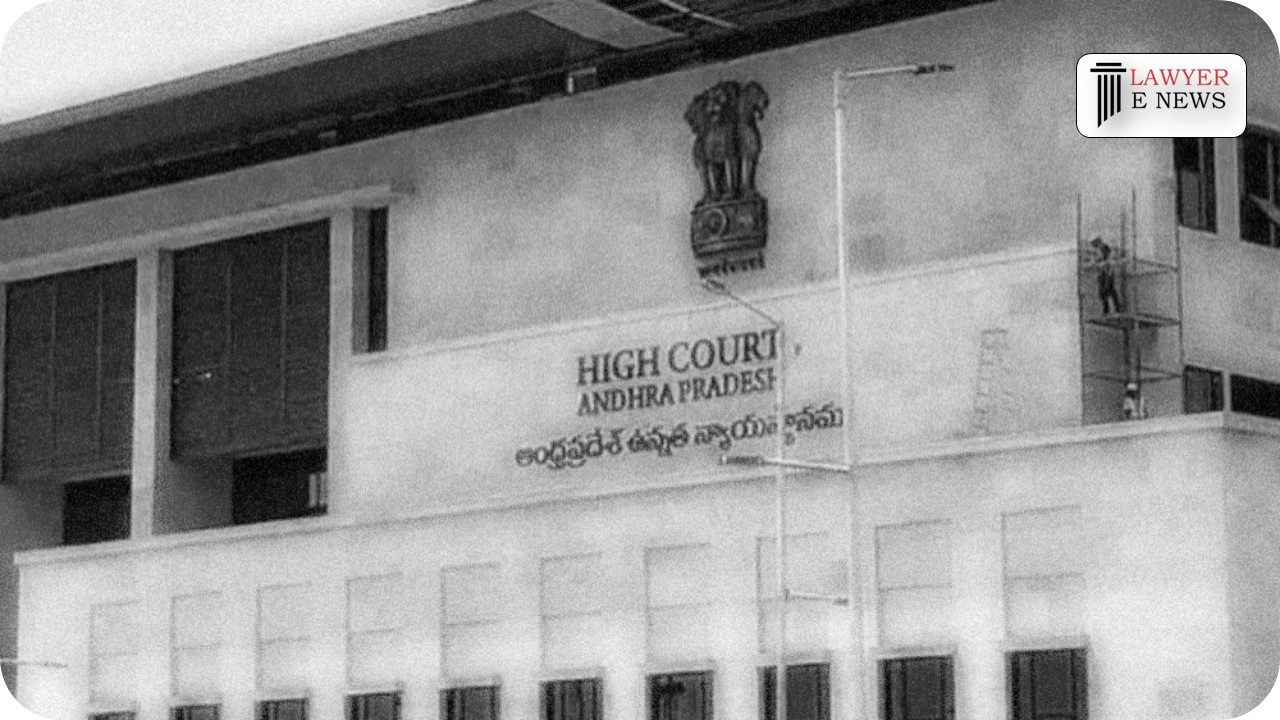-
by Admin
15 February 2026 5:35 AM



The High Court confirms life imprisonment for the accused, emphasizing the reliability of extra-judicial confessions and fingerprint evidence linking the accused to the crime scene.
In a significant judgment, the Andhra Pradesh High Court has upheld the conviction of Kadali Kodandaramu @ Ramu and Velugula Prakash for murder and attempted theft, affirming the trial court’s sentence of life imprisonment and additional rigorous imprisonment. The bench, comprising Justices K. Suresh Reddy and B.V.L.N. Chakravarthi, emphasized the reliability of extra-judicial confessions, the recovery of material objects, and the crucial role of fingerprint evidence in corroborating the presence of the accused at the crime scene.
The case revolves around the brutal murder of Atmakuri Srinivasulu @ Venkata Rao, a security guard at an Axis Bank ATM in Tanuku, and the attempted theft of cash from the ATM on March 10, 2012. The appellants, Kadali Kodandaramu @ Ramu and Velugula Prakash, along with a juvenile accomplice, were found guilty of attacking the deceased and attempting to break into the ATM machine. The trial court convicted them under Section 302 read with Section 34 IPC and Section 380 read with Section 511 IPC, leading to life imprisonment and additional sentences.
Credibility of Extra-Judicial Confession:
The High Court upheld the trial court’s reliance on the extra-judicial confession made by the accused to the Village Revenue Officer, P.W-15. Justice B.V.L.N. Chakravarthi noted, “The confession led to the discovery of incriminating material objects, including blood-stained clothes and weapons, which corroborated the confession and linked the accused to the crime.” The court found no reason to disbelieve the Village Revenue Officer’s testimony, despite arguments from the defense that the officer was a stranger to the accused.
Fingerprint Evidence:
Addressing the collection and comparison of fingerprints, the court held that the police were competent to collect the fingerprints of the accused without a Magistrate’s order. The fingerprints collected from the crime scene matched those of the accused, substantiating their presence at the ATM during the crime. “The fingerprints of the accused, collected by the police, matched the chance prints found at the crime scene, leaving no doubt about their involvement,” the bench observed.
The prosecution’s case was further strengthened by the recovery of material objects, including blood-stained clothes and the weapon used in the murder, based on the confessions made by the accused. The forensic examination confirmed the presence of human blood on these items, corroborating the prosecution’s narrative.
Justice Chakravarthi remarked, “The corroboration provided by the material objects and fingerprint evidence is significant and lends credibility to the prosecution’s case, especially in the face of the extra-judicial confessions.”
The High Court’s judgment underscores the judiciary’s commitment to upholding justice through a thorough examination of all available evidence. By affirming the convictions and sentences, the court has reinforced the legal principles surrounding the reliability of extra-judicial confessions and forensic evidence. This judgment is expected to have a lasting impact on the prosecution of similar cases, emphasizing the importance of corroborative evidence in securing convictions.
Date of Decision: July 05, 2024
Kadali Kodandaramu @ Ramu & Velugula Prakash vs. State of Andhra Pradesh
